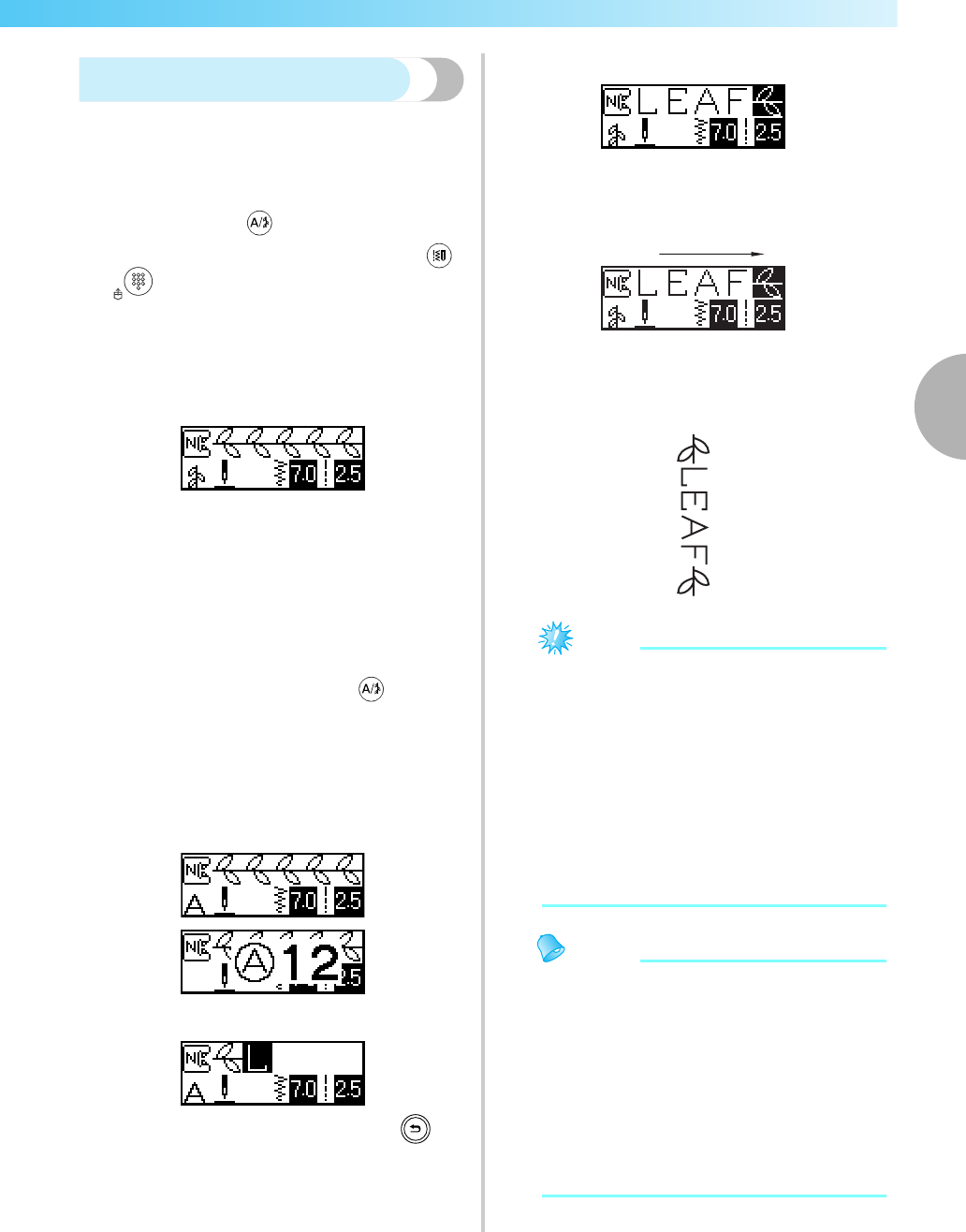
Sewing the Various Built-In Decorative Patterns 111
— — — — — — — — — — — — — — — — — — — — — — — — — — — — — — — — — — — — — — — — — — — — — — — — — — — —
3
Combining patterns
Multiple patterns can be combined and sewn
together.
Character stitches and utility decorative stitches
(stitches selected with ) can be combined.
However, utility stitches (stitches selected with
and ) cannot be combined.
a
Select the first pattern.
X The first pattern is selected and appears in
the LCD.
• When the sewing is started, the selected
pattern is sewn repeatedly until the sewing
machine is stopped.
b
Select the next pattern.
Use the numeric keys to type in the number for
the desired stitch.
To change the stitch type, press
(Character/utility decorative stitch key). After
the icon for the desired stitch mode appears in
the lower-left corner of the screen, type in the
number for the desired stitch.
X The combined patterns appear in the LCD.
• To remove a selected pattern, press
(Cancel/clear key) in the operation panel.
The pattern that was selected last is removed.
c
Repeat steps b .
d
After all of the desired patterns are selected,
start sewing.
a Sewing direction
X The order that the patterns appear in the
LCD is the order that they will be sewn.
Note
z When the combined pattern is sewn at least
one time, sewing of the combined pattern is
temporarily stopped. Typing in the number
of a stitch after sewing clears the combined
pattern and selects the new stitch, instead of
adding the new stitch to the combined
pattern.
z If you do not wish to clear the pattern, save it
before typing in the number of the new
stitch. For details on saving patterns, refer to
“Saving patterns” (page 114).
Memo
z Up to 35 patterns can be combined.
z If multiple patterns have been combined, the
sewing machine stops once all the selected
patterns displayed in the LCD have been
sewn. To repeatedly sew the combined
pattern, refer to “Repeat sewing patterns”.
z The combined pattern can be saved for later
use. For details, refer to “Saving patterns”
(page 114).
1


















